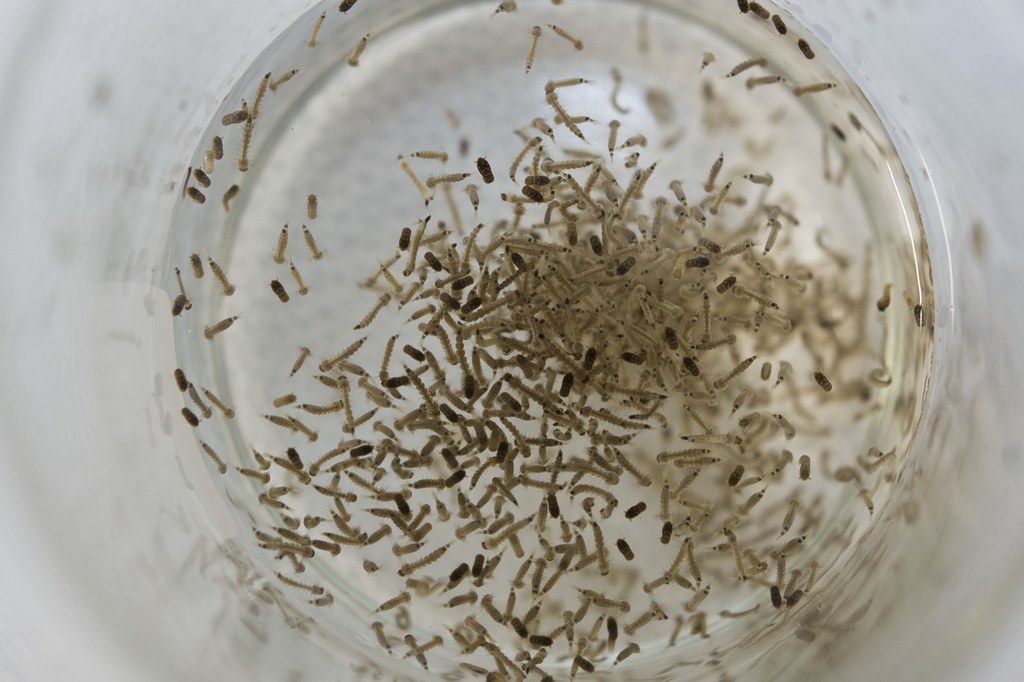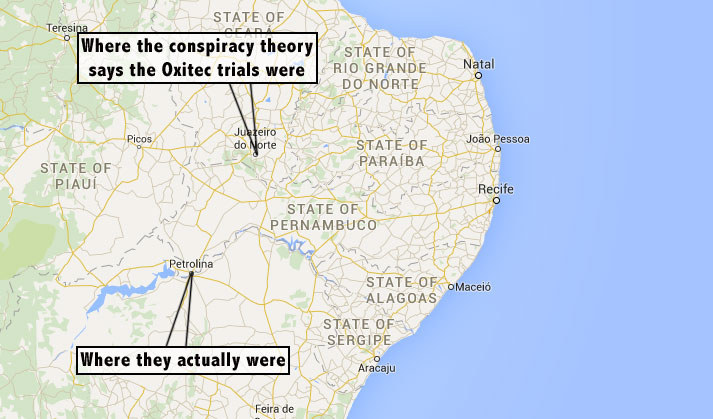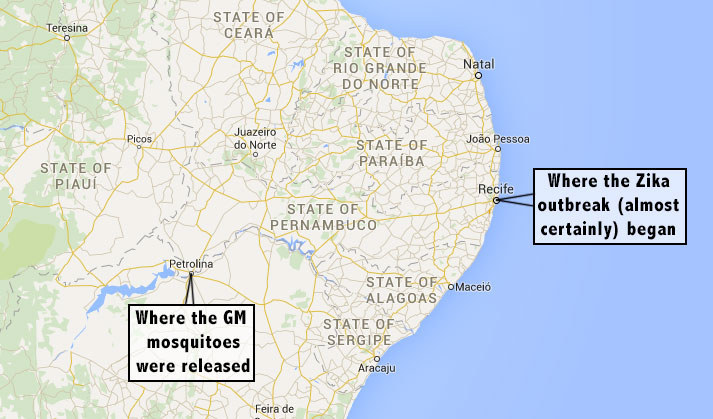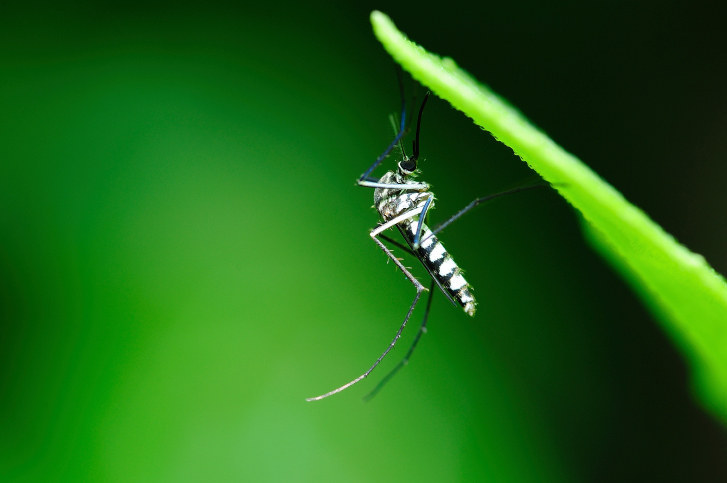The Zika virus outbreak has been declared a global health emergency by the World Health Organisation (WHO).

Recently, a bizarre conspiracy theory has cropped up about it. People have claimed that genetically modified mosquitoes are behind the disease.
The Daily Mail is probably the most high-profile media outlet to have covered the conspiracy theory, asking: "Are scientists to blame for Zika virus? Researchers released genetically modified mosquitos into Brazil three years ago."
It has also been covered in the Ecologist and the Kremlin-controlled channel RT.
As is often the case with conspiracy theories, there is a kernel of truth behind it. A British company really did release millions of genetically modified mosquitoes in Brazil in 2012.

The mosquitoes, which were all male, were engineered to be unable to have healthy offspring. The idea was that they would breed with females in the wild. The resulting juveniles would die as larvae, and the populations would crash.
It was a trial by a British company, called Oxitec (short for Oxford Insect Technologies), which began in 2010. It was extremely successful. In the areas it was tried, the populations of Aedes aegypti – the species of mosquito which carries dengue, as well as Zika – fell by more than 90%.
The GM mosquitoes are a new idea, but the concept of releasing sterile mosquitoes is more than 60 years old. In the past, mosquitoes would be bred and then irradiated to make them sterile. However, this made them less healthy, and therefore less likely to find mates.
The Oxitec mosquitoes are perfectly healthy as long as they are given a drug called tetracycline. But in their wild-born offspring don't get that drug, so they die.
The conspiracy theory appears to have begun on Reddit, where someone pointed out that the centre of the Zika outbreak is near the place where an Oxitec trial was held.

It also says that, in the lab, 3-4% of the supposedly non-viable mosquito offspring survive to adulthood even without tetracycline.
The post asks: "Could the mosquito be more susceptible to certain pathogens, that it then passes on to humans? If a pathogen like the Zika virus can thrive in the mosquito without restraint, it could evolve into something far more dangerous than its original incarnation, pulling the lever on the slot machine with every replication until it hits the genetic jackpot."
However, there are some major flaws with the theory. Firstly, it's got the wrong Juazeiro.

It gets worse. The Zika outbreak wasn't centred around Juazeiro (either Juazeiro). It was centred around Recife, on the coast.

What's more, the Oxitec release in Juazeiro ended in 2012, and the Zika outbreak didn't start until May 2015.

The idea that the genetically modified mosquitoes could increase the risk of a novel disease is false as well. For one thing, the mosquitoes that are released are all male.
Male mosquitoes do not bite – only females do. That means that males don't carry the virus.
Also, the idea that 3-4% of GM mosquitoes could survive without tetracycline is not supported by the evidence.
In laboratory settings, when the tetracycline was withheld, up to 5% of the mosquitoes did survive to adulthood. However, laboratory settings and the wild are very different. "When you rear these mosquitoes in the lab, they have beautiful conditions," Parry told BuzzFeed Science. "It's like a five-star hotel: Constant temperature, abundant food, no predators, mates, resting space."
Under those perfect conditions, still, fewer than one in 20 mosquitoes survived. When the researchers tried varying the temperature, they found no survivors at all. A study found no survivors in the wild eight weeks after release, either, even though the GM mosquitoes (and any offspring) were marked with a fluorescent protein which made them easy to spot.
Even if some do successfully reproduce, which a few may, there's no reason to think that they would be more likely to carry Zika or any other disease.

One exponent of the conspiracy theory thought that GM genes could leap from the mosquito to the virus. But that's totally impossible.
The Ecologist piece, by Oliver Tickell, suggested that the method used to put the modified gene into the mosquito, a short piece of DNA known as the "piggyBac transposon", could have allowed genes to jump from mosquito DNA to viral DNA.
But, as Wilcox points out, the Zika virus doesn't have any DNA. It's an RNA virus. The genes simply can't jump across that way.
The sad irony is that Oxitec's methods could be the most powerful tool we have in slowing or stopping the spread of Zika.

CORRECTION
The Brazil Zika outbreak began in May 2015. An earlier version of this article said that it began in May this year.
